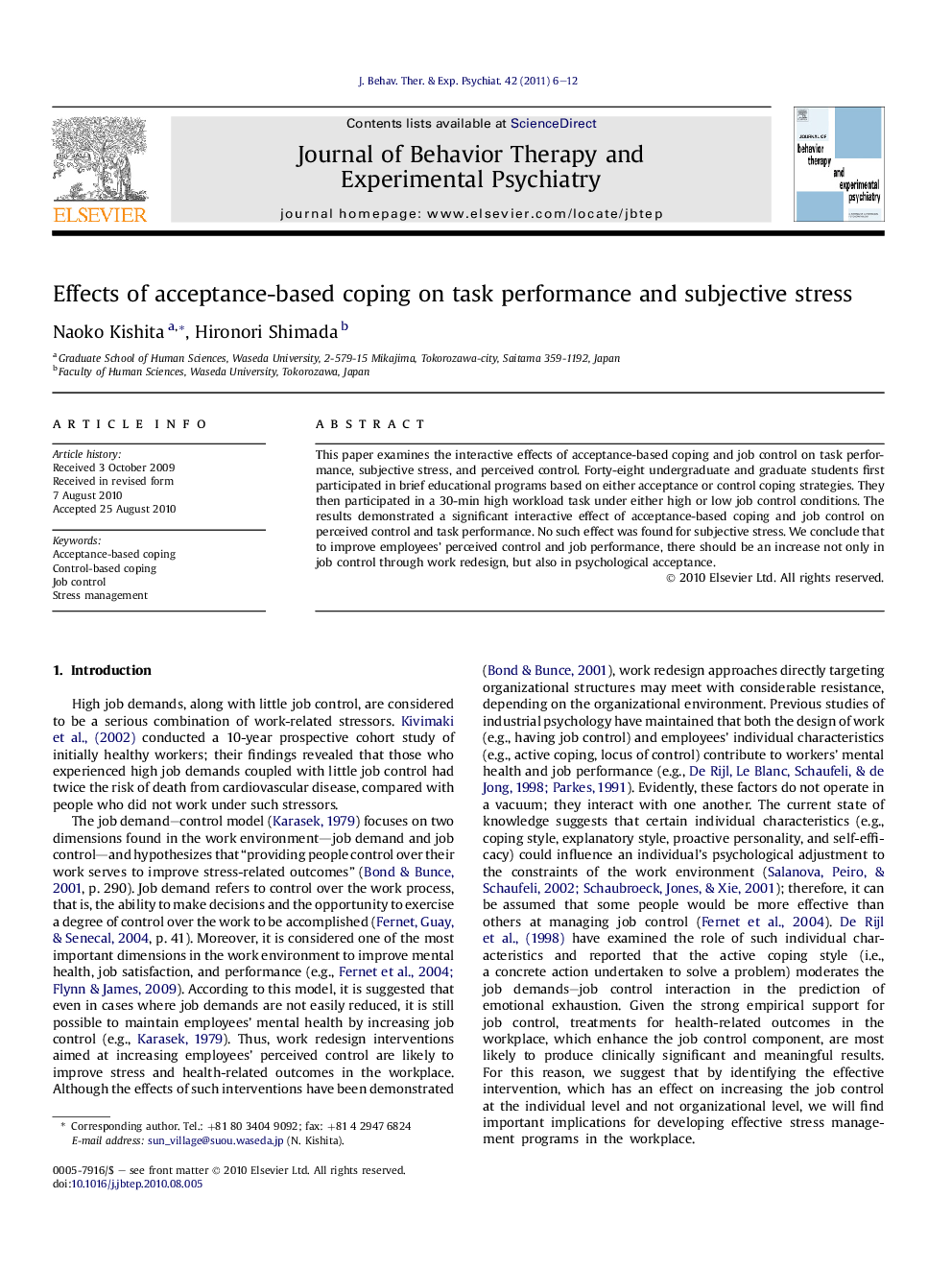| Article ID | Journal | Published Year | Pages | File Type |
|---|---|---|---|---|
| 910421 | Journal of Behavior Therapy and Experimental Psychiatry | 2011 | 7 Pages |
This paper examines the interactive effects of acceptance-based coping and job control on task performance, subjective stress, and perceived control. Forty-eight undergraduate and graduate students first participated in brief educational programs based on either acceptance or control coping strategies. They then participated in a 30-min high workload task under either high or low job control conditions. The results demonstrated a significant interactive effect of acceptance-based coping and job control on perceived control and task performance. No such effect was found for subjective stress. We conclude that to improve employees’ perceived control and job performance, there should be an increase not only in job control through work redesign, but also in psychological acceptance.
Research highlights►Acceptance-based coping increases perceived control for high workload task. ►Acceptance-based coping facilitates the effect of job control on task performance. ►Acceptance-based coping does not have an effect on stress reduction. ►Control-based coping failed to show significant effect on work-related outcomes.
